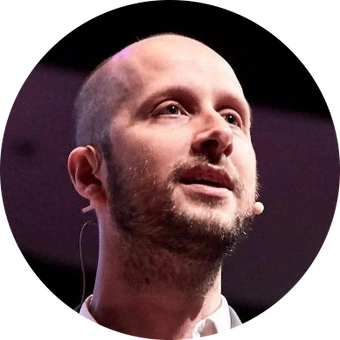Software Engineer II- Microsoft Teams

Microsoft
Software Engineer II- Microsoft Teams
Vancouver, British Columbia, Canada
Save
Overview
As a full stack Software Engineer II in the Teams and Channels area of the product, you will work on creating true boundaryless collaboration spaces at scale and integrate with other products and services at Microsoft to help our customers be most productive. Our core challenges include covering a diverse set of user needs and delivering high reliability while operating world-wide at enormous scale. This role will provide you with an opportunity to work with teams and technologies across the company and beyond. If you want to work on full stack technologies with the desire to move fast and directly impact the outcomes for this flagship product, this may be the team for you.
Our culture is inclusive, casual, and high energy; our team members come from diverse backgrounds and are grounded in our customer needs. This is a fantastic opportunity to build services and experiences that millions of people worldwide will use at home, at school, at work, and across their daily lives.
Microsoft’s mission is to empower every person and every organization on the planet to achieve more. As employees we come together with a growth mindset, innovate to empower others, and collaborate to realize our shared goals. Each day we build on our values of respect, integrity, and accountability to create a culture of inclusion where everyone can thrive at work and beyond.
Qualifications
Required Qualifications:
- Bachelor's Degree in Computer Science or related technical field AND 2+ years technical engineering experience with coding in languages including, but not limited to, C, C++, C#, Java, JavaScript, or Python
- OR equivalent experience.
- 2+ years of experience in building and shipping web applications AND/OR experience building large-scale enterprise applications.
Other Requirements:
Ability to meet Microsoft, customer and/or government security screening requirements are required for this role. These requirements include but are not limited to the following specialized security screenings:
- Microsoft Cloud Background Check: This position will be required to pass the Microsoft Cloud background check upon hire/transfer and every two years thereafter.
Preferred Qualifications:
- Bachelor's Degree in Computer Science or related technical field AND 4+ years technical engineering experience with coding in languages including, but not limited to, C, C++, C#, Java, JavaScript, or Python
- OR Master's Degree in Computer Science or related technical field AND 2+ years technical engineering experience with coding in languages including, but not limited to, C, C++, C#, Java, JavaScript, or Python
- OR equivalent experience.
Software Engineering IC3 - The typical base pay range for this role across Canada is CAD $85,000 - CAD $166,800 per year.
Find additional pay information here:
https://careers.microsoft.com/v2/global/en/canada-pay-information.html
Microsoft will accept applications for the role until September 18th, 2025.
Responsibilities
- Collaborates with appropriate stakeholders to determine user requirements for a scenario.
- Drives identification of dependencies and the development of design documents for a product, application, service, or platform.
- Creates, implements, optimizes, debugs, refactors, and reuses code to establish and improve performance and maintainability, effectiveness, and return on investment (ROI).
- Leverages subject-matter expertise of product features and partners with appropriate stakeholders (e.g., project managers) to drive a workgroup's project plans, release plans, and work items.
- Acts as a Designated Responsible Individual (DRI) and guides other engineers by developing and following the playbook, working on call to monitor system/product/service for degradation, downtime, or interruptions, alerting stakeholders about status and initiates actions to restore system/product/service for simple and complex problems when appropriate.
- Proactively seeks new knowledge and adapts to new trends, technical solutions, and patterns that will improve the availability, reliability, efficiency, observability, and performance of products while also driving consistency in monitoring and operations at scale.
